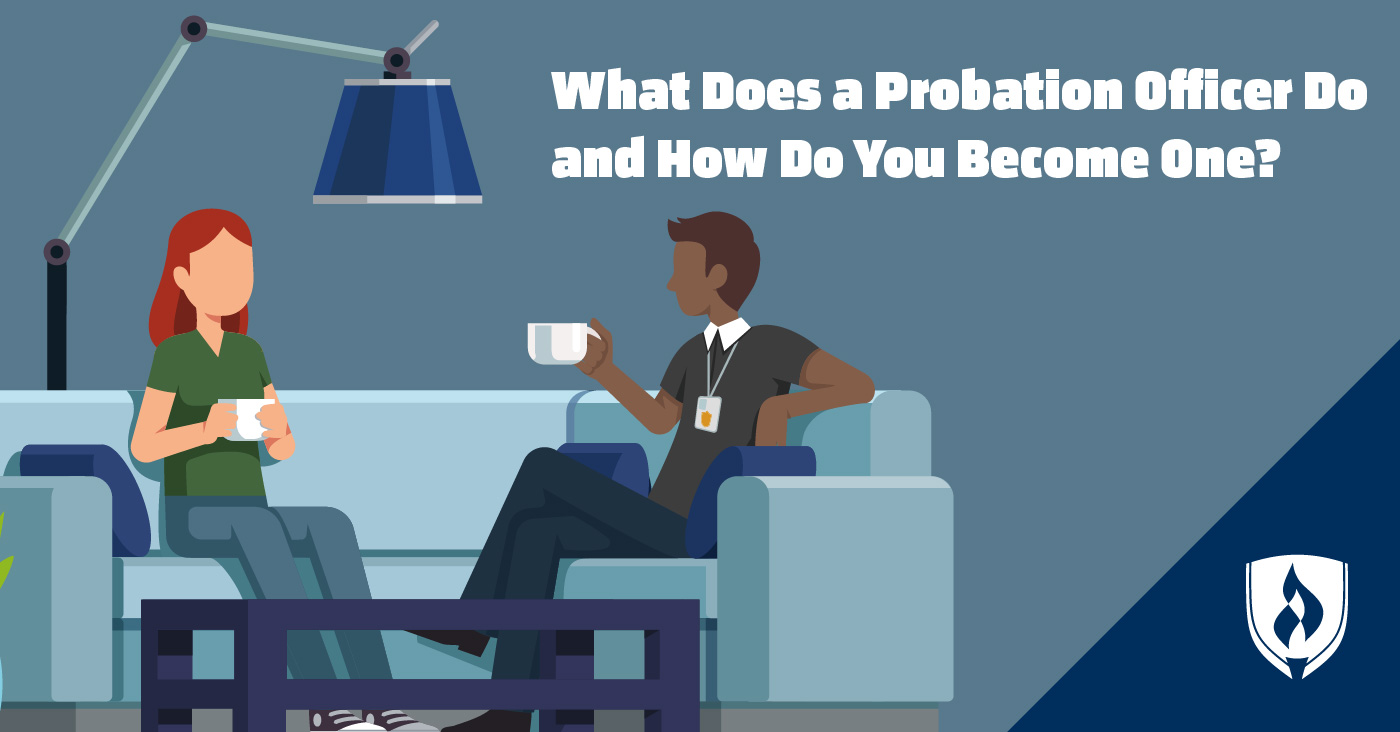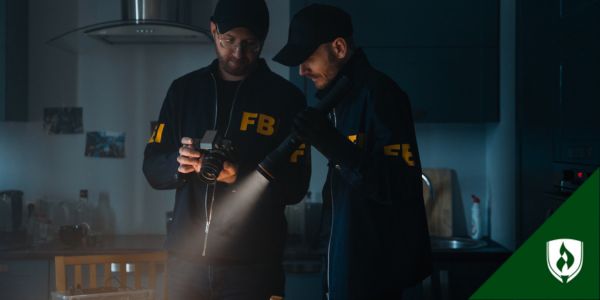
If someone asked you to name a profession that changes lives for the better, probation officer probably wouldn’t be the first job title on your list. But positively impacting people’s lives and benefiting society is exactly what these social service workers do!
Crime dramas would have you believe that being a probation officer is all about tracking down people who have “broken probation,” but the truth isn’t quite so dramatic. These professionals are an important part of the criminal justice system thanks to their focus on rehabilitation for past offenders.
What does a probation officer do if it isn’t tracking down criminals? Join us as we take an in-depth look at what it means to be a probation officer.
What does a probation officer do?
Probation officers work with offenders who have been given probation, which is when a judge allows offenders to complete a period of supervised good behavior rather than going to prison.1 A probation officer’s primary goal is to help probationers stay in good standing throughout their probation so they can restart their lives and avoid committing more crimes in the future.
Probation officer job duties
These criminal justice professionals interview probationers and their families and friends to determine the best course of action for rehabilitation. They might assign a treatment plan that helps probationers overcome addictions, and provide resources to help probationers find affordable housing or a stable job.
Officers also ensure that their probationers are living according to the terms of their probation, which might include community service, paying a fine, undergoing regular drug tests and reporting to their probation officer for check-ins. Probation officers frequently visit with their probationers and write reports on their progress. They may also be called to testify in court about their probationers’ behavior.
Probation officer work environment
No two days are ever the same for a probation officer, and that includes work environment. Probation officers do some office work like maintaining case files and writing reports, but they also travel locally to meet with probationers and their families, perform home searches and appear in court. The vast majority of probation officers are employed by their state or local government. Only 1% work for individual social assistance programs, according to the Bureau of Labor Statistics (BLS).1
Though working as a probation officer isn’t as dramatic as what you see on your favorite crime show, it’s not entirely without risk. Officers may encounter people who are upset or angry, and some of their work might take them to rough neighborhoods that have a risk of violence. Like any criminal justice related occupation, you can expect to encounter some stressful or sad situations. But it’s not all gloom—probation officers also have a unique and fulfilling opportunity to work closely with people who’ve started down a poor life path and help them get things straightened out.
Probation officer job outlook
This profession is projected to see a steady 6% growth in employment through 2026, according to the BLS. This rate keeps pace with the average for all U.S. occupations, and it will result in an additional 5,200 probation officer jobs by 2026.
How do you become a probation officer?
Probation officers carry the heavy responsibility of helping past offenders get their lives on the right track. It’s rewarding work, but it’s not a career you can jump into without some previous training. Here are some of the skills and education that prepare probation officers to undertake their important work.
Probation officer skills
Navigating tricky situations and supporting probationers who are struggling is all part of a day’s work as a probation officer. Successful officers need both technical and transferable skills to manage their workload, including many that revolve around building strong relationships and motivating probationers to continue moving toward rehabilitation.
We analyzed more than 4,000 probation officer job postings to bring you these in-demand skills employers are looking for.2 You might be surprised to discover you already have some of the qualities a probation officer needs!
Transferable skills2
- Writing
- Communication
- Planning
- Computer literacy
- Relationship building
- Preparing reports
- Bilingual
- Problem-solving
- Collaboration
Technical skills2
- Criminal justice
- Case management
- Psychology
- Mental health
- Public health and safety
- Social services
- Rehabilitation
- Scheduling
- Treatment planning
- Motivational interviewing
Probation officer education
If that list of technical skills looks intimidating, you might be wondering about how to become a probation officer and the training you’ll need. Our analysis of more than 2,800 probation officer job postings reveals that 72% were seeking candidates with at least a bachelor’s degree.3 The BLS adds that a bachelor’s degree in criminal justice, social work or a related field is most likely to prepare candidates for a probation officer career.1
Earning a bachelor’s degree doesn’t have to be as daunting as it sounds. You can complete some criminal justice programs in as few as 18 months!4 Once you have a degree in hand, you’ll most likely need to complete a government training program and pass a certification or competency exam. The BLS reports that most probation officers will also need to pass a drug test and criminal background check.
Helping people get back on track
What does a probation officer do? The simple answer is that they change lives with their expertise and guidance in rehabilitation.
If you’re ready to take the first step toward a career that does more than just pay the bills, learn how you can get started by visiting the Rasmussen College Criminal Justice program page.5
Related Articles:
- Breaking Down the Different Types of Prisons in America
- 17 Legal Podcasts That Will Pique the Interest of Aspiring Paralegals
- Is Cyberbullying Illegal? When Comments Turn Criminal
1Bureau of Labor Statistics, U.S. Department of Labor, Occupational Outlook Handbook, [information accessed April 16, 2019] www.bls.gov/ooh/. Information represents national, averaged data for the occupations listed and includes workers at all levels of education and experience. Employment conditions in your area may vary.
2Burning-Glass.com (analysis of 4,121 probation officer job postings, Feb. 01, 2018 - Jan. 31, 2019).
3Burning-Glass.com (analysis of 2,859 probation officer job postings by education, Feb. 01, 2018 - Jan. 31, 2019).
4Completion time is dependent on transfer credits accepted and the number of courses completed each term.
5The Criminal Justice program has not been approved by any state professional licensing body and does not lead to any state-issued professional license. In Minnesota, the Criminal Justice Associate’s degree program does not meet the standards established by the Minnesota Peace Officer Standards and Training Board for persons who seek employment as a peace officer.




